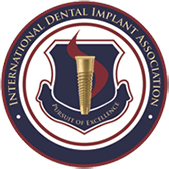
Dental cavities are among the dental conditions where time is very crucial. Early detection of cavities can help preserve your natural tooth, keep you from a tooth infection, and save you from expensive dental costs. As silent as the bacteria can be, there are warning signs during the early stages of cavity formation.
As a top-rated dentist in Charlotte, Modern Family Dental Care will guide you in this post on how to know if you have a cavity to prevent it from getting worse.
6 Ways on how to know if you have a cavity or tooth decay
Chances are, you are feeling something odd in your teeth to suspect that you have a cavity. If you feel or notice any of the following signs of a cavity, schedule an appointment with your dentist as soon as possible to prevent the spread of tooth decay.
Tooth sensitivity
If you feel a sharp pain when you are eating or drinking hot or cold foods and beverages, you may have a cavity. The tooth enamel is a hard substance that covers the tooth pulp holding the blood vessels and nerves of your tooth. Once the bacteria damage your tooth enamel, the next layer of your tooth called dentin will be exposed.
Dentin may cover the tooth pulp, but it’s not thick enough to insulate tooth nerves from hot and cold temperatures. However, some conditions may also cause sensitivity, like worn down tooth enamel and post-treatment recovery from a filling or a dental crown.
Black or white spots on teeth
Demineralization of the tooth enamel is the first stage of tooth decay or cavities. The bacteria in plaque produce acids that remove minerals and weaken the tooth enamel. Advanced tooth decay may cause brown, black, or dark spots on the chewing surface or sides of your tooth.
At this stage, the damage is on the tooth enamel and may not cause any pain. Your dentist may recommend dental sealants or dental bonding to prevent the cavity from spreading and getting worse.
Bad breath or halitosis
Have you ever wondered why you still have persistent bad breatheven if you brush your teeth multiple times?
The smell might be coming from a hidden cavity. According to the American Dental Association, a cavity is among the dental conditions that may cause halitosis along with dry mouth and gum disease.
Gum swelling caused by a tooth abscess
Periapical tooth abscess occurs due to an injury or untreated cavity. It is the most advanced stage of tooth decay that may cause the gums to swell, pain, and a metallic taste in your mouth due to the accumulation of pus.
Your dentist may save your infected tooth with root canal therapy, but for the worst cases, the only option would be tooth extraction.

Visible holes in your tooth
One of the obvious signs of cavities is when the tooth starts to show physical damages like holes in your tooth. It usually happens when the bacteria has succeeded in dismantling your tooth enamel and reaching the internal layers of your tooth. If left untreated, the hole can grow bigger and affect the major structure of your tooth, leading to tooth extraction.
Tooth pain
Tooth pain is the most definitive sign of a cavity that pushes most patients to visit the dentist. It often occurs when food particles get stuck in the cavity or when pressure is applied to the chewing surface of the affected tooth. However, tooth pain can also be caused by other factors such as trauma, bruxism, and eruption of your wisdom tooth.
Nevertheless, it’s best to consult your dentist as soon as possible to identify the root cause of the pain.
Prevent the progression of your cavity at Modern Family Dental Care
Our natural teeth have profound qualities that no prosthetic can imitate. Proper dental hygiene through brushing, flossing, and using a fluoride toothpaste are the hallmarks of good oral health. Moreover, early detection is also a crucial defense in preventing tooth decay from getting worse.
Don’t let the bacteria destroy the toughest barriers of your tooth. Let Dr. Taj and our dental team take over and care for you. Contact us today!





